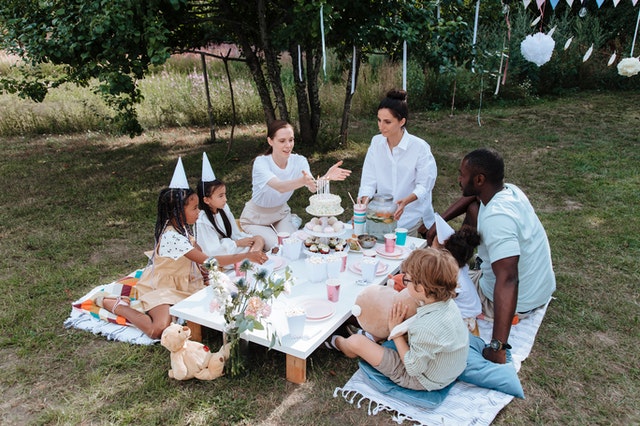Going through a divorce is not easy for either spouse, even when both agree that ending the marriage is the right thing to do. When there are kids involved, however, the situation becomes far more complicated, and the difficulty of moving through the process can be much greater for kids than for parents. Knowing how to support your children during a divorce can help parents make the best possible decisions.

The following guidance is offered in the hopes of helping parents move through their divorce without bringing undue stress to children. Working with a Men’s divorce & family lawyer can be especially helpful to fathers who are concerned about how a divorce and custody arrangement might impact their kids.
Finding shared ground
One of the best ways for parents to move through a divorce is to work on ways to find shared goals. In most cases, protecting children from stress and turmoil is a goal that both parents share. If possible, sit down and discuss the importance of keeping shared children as healthy and happy as possible as you navigate the divorce process.
Many spouses assume that this is a given, and don’t take time to actually discuss the shared hope of protecting kids from harm. But there are benefits to having this talk in person. Not only does it remind parents that they will remain part of a team even after their divorce, but it can also help both parties recall the agreement to place the needs of shared children above everything else.
Protect the other parent’s relationship with the child
This can be a hard one for many divorcing parents to manage, especially if there is a high degree of contention between parties. But it is essential to remember that unless there are serious issues of abuse at play, remaining closely connected with each parent is central to a healthy and happy child.
Avoid the urge to speak poorly of the other party around your child, or even when there is a chance your conversations can be overheard by the child. Never make your child feel guilty about being excited to see the other parent.
Even if it’s hard to help your kids gather their belongings and head off to see their other parent, never make them feel as though they are abandoning you or causing you to feel sad or lonely. That’s simply too much of a burden to place on kids, especially since they were not involved in the decision to alter the family dynamics.
Express love and make time for fun

Going through a divorce can be all-consuming, but it’s important to make time to connect with kids on a deep and personal level. Some parents even rely on scheduled family time, while others find ways to incorporate togetherness into the daily routines.
Understand that even a contentious or complicated divorce won’t last forever, and make sure you remain available and involved with your kids during the process. This also allows you to monitor your child’s stress levels, sleep quality, and overall emotional help. If you see signs of distress, take steps to get your child the appropriate help, whether that means working with a counselor, getting extra support at school, or even just altering bedtimes and morning routines.
Try to work out custody arrangements together
The end of a marriage often brings out the very worst in spouses, but those who share kids have an obligation to set their own emotions aside to focus on what’s best for their children. Very few parents who rely on a court of law to determine child custody arrangements are truly happy with the outcome.
A stranger, even a judge who handles divorce and child custody every day, is ill-equipped to understand the unique needs of your family. A one-size-fits-all child custody arrangement is unlikely to be a good match for your needs or your child’s schedule.
Make an effort to work together to find a schedule that allows both parents to spend quality time with shared children and play meaningful roles in their development. You are going to need to work together on many issues as your kids move through childhood and creating a fair child custody arrangement is a great way to transition into a co-parenting structure.
Meet your kids where they are
Kids can react to the news of a divorce very differently depending on their age and the existing family dynamics. Take steps to help your kids in whatever way is needed at the time and understand that those needs will change as they grow older or as they begin to realize how their lives will change after the divorce.
Parents often make the mistake of over-explaining the situation to younger children. Young kids lack the maturity or experience needed to fully process information about a divorce. They simply need to be loved and supported as they adjust to the new family structure.
Older kids often require more in the way of discussion and explanation. They might demand to know details about why the divorce is taking place or ask questions about how things will look in the years to come. Use good judgment on deciding how many details to share, and when possible, talk to your spouse about how to broach these subjects so you are not providing conflicting information.
Get the help and support you need
Fathers who are preparing for divorce often have many questions and concerns about how the process will impact their kids. Working with an experienced men’s divorce and family lawyer is a great way to ensure you get the information you need to navigate this challenging process with ease, and to make sure that you and your kids emerge as healthy and as happy as possible.
Hey welcome to my blog . I am a modern women who love to share any tips on lifestyle, health, travel. Hope you join me in this journey!

Speak Your Mind